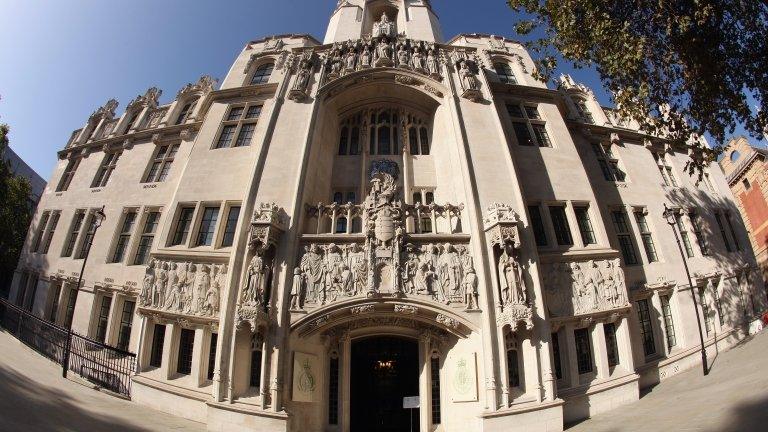What next in the Brexit PR war?
- Published
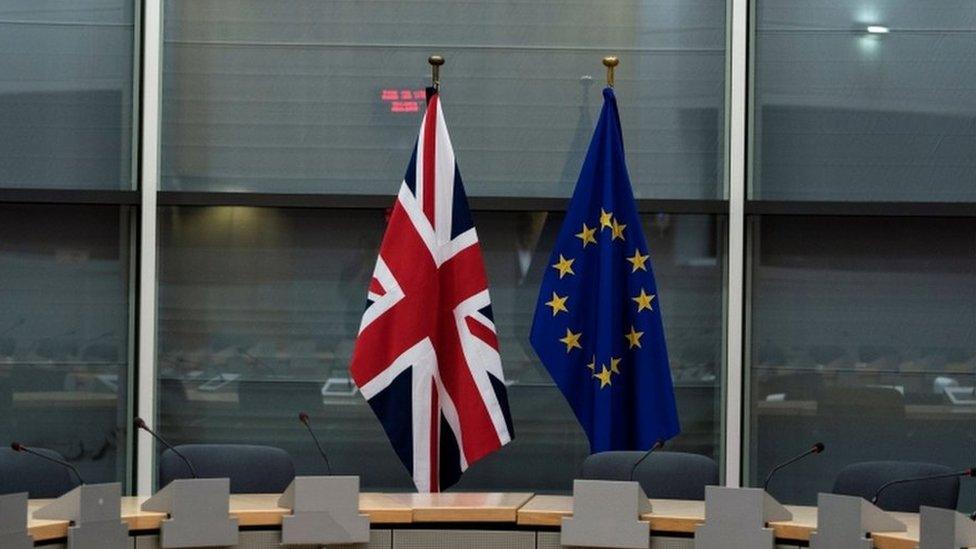
What next in the Brexit saga?
It's been one of those Brexit weeks that leaves you waking up on a Saturday morning with a sore head (minus the party the night before) and a myriad of questions.
Will the UK leave the EU on 31 October as Boris Johnson promises?
Is there likely to be a deal with the EU?
How much of Downing Street's claim of progress in Brexit renegotiations (and EU figures' counter-claim) is genuine and how much is spin?
Off the record, as things stand this weekend, my Brussels sources sound gloomy.
On the record, minus an outburst on Monday from Luxembourg's prime minister (who possibly hadn't got the memo), EU leaders have agreed to sound as patient, positive and open-minded (I'm told) as possible.
Exhibit A: Jean Claude Juncker's interview with SkyNews. Yes, he thought a deal could still be reached. Yes, the backstop could be replaced. Yes, the UK suggestions so far could be the basis for an eventual deal. But listen to him carefully and you'll hear him pulling off a "Merkel". The German chancellor is a master at sounding resolute and positive about finding a Brexit deal while not moving a millimetre from the EU stock position.
Withering assessment
By now Brexit is a PR war as much as anything else.
But in private, my EU contacts couldn't be clearer. They say the UK proposals so far do not tick the main boxes the Irish backstop was designed to protect: the EU's single market and the Northern Ireland peace process, including the all-Ireland economy and north-south co-operation outlined in the Good Friday Agreement.
This withering assessment was confirmed on Friday night in a leaked internal memo from the EU's chief Brexit negotiator Michel Barnier following his meeting with the UK Brexit Secretary, Steve Barclay, after the UK had handed over three informal papers on food safety, manufacturing and customs.
There was a quite different assessment from Mr Barclay who said he thought the meeting went well because it "overran", showing, he said, that both sides were keen to find a deal.
Barclay: No one wants to see a no-deal Brexit
Racing hearts
"There's no way we can guesstimate if a deal is possible next month or not," an influential EU diplomat told me. "Is Boris Johnson's main priority to remain prime minister and to head in to an election with his hard Brext credentials still intact? Then the chances of him agreeing a deal with us are almost nil. Or with court cases against him, opposition MPs making life tough for him, nowhere near a majority in parliament - is getting a Brexit deal Boris Johnson's only way forward? We're still unsure which Boris Johnson we're dealing with."
Ten days ago or so there had been a quickening of heart-beats in Brussels when the prime minister first mentioned his openness to the idea of Northern Ireland aligning with the Republic and the rest of the EU when it comes to food, animal and plant safety. EU hearts palpitated all the more when the unionist DUP also appeared to be softening their line on having regulatory differences with the rest of the UK.
Could this be Boris Johnson and the DUP coming round to a Northern Ireland-only backstop, where Northern Ireland would stay in the EU customs union and parts of the single market necessary to keep the border infrastructure and custom check free, EU leaders wondered?
Confused by Brexit jargon? Reality Check unpacks the basics.
But the EU mood had darkened by the end of this week after the Brexit secretary spent the latter half of the week insisting on a Brexit deal without a backstop or replacement backstop, preferring to work it out later, during the standstill transition period.
The EU views this as the Johnson government saying "trust us". My EU contacts don't trust them. The worry here is that if the backstop replacement were discussed AFTER Brexit, the UK would use Northern Ireland as a bargaining chip in future trade negotiations (for example to cherry pick access to the single market).
Mr Barclay also made it clear that Downing Street's goal for the Irish border is to keep it "as friction free as possible" rather than aim for "frictionless trade".
All of which are reincarnations of alternative arrangement backstop ideas the EU rejected in the past, under Theresa May.
'Backstop minus'
So what about the EU? It's all very well EU leaders insisting on bigger compromises from the Johnson government. What movement from their side?
Well, remember last summer before Boris Johnson became prime minister, Brussels insisted there would be no new negotiations. The Withdrawal Agreement signed off by Theresa May's government, would not and could not be re-opened, said EU leaders. But Mr Johnson's credible no deal threat has led to the EU quietly walking away from that insistence.
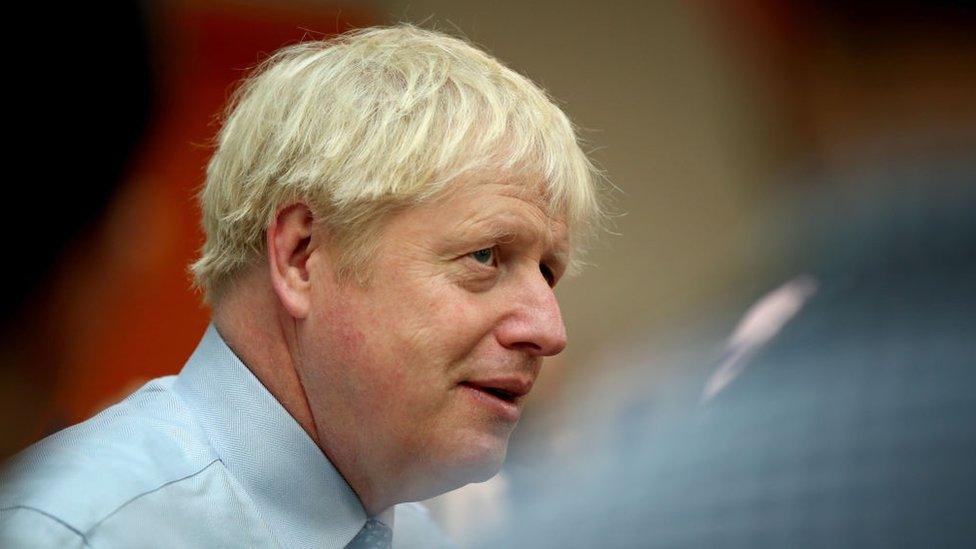
Prime Minister Boris Johnson says he remains "cautiously optimistic" a deal can be done
Based on my conversations with EU figures, there seems some political openness to a 'backstop minus' (sorry for dreadful phrase) where EU negotiators could take a fresh look at the backstop text and slim down the sum total of regulations in it. Others speak of the possibility of a time limit and a role (though the EU rules out a veto) for Northern Ireland's power-sharing Assembly. Though of course for the moment Stormont is empty.
These would be considerable compromises for the EU, and especially for Ireland, if they were to be offered but for now the EU doesn't want to make any moves for fear the Johnson government would pocket any concessions and then ask for more.
So the talks are stuck-ish for now, despite all the shuttle diplomacy and technical talks in Brussels.
"The situation is clearly evolving," an EU diplomat remarked to me. "But right now, no-one knows in which direction."
- Published20 September 2019
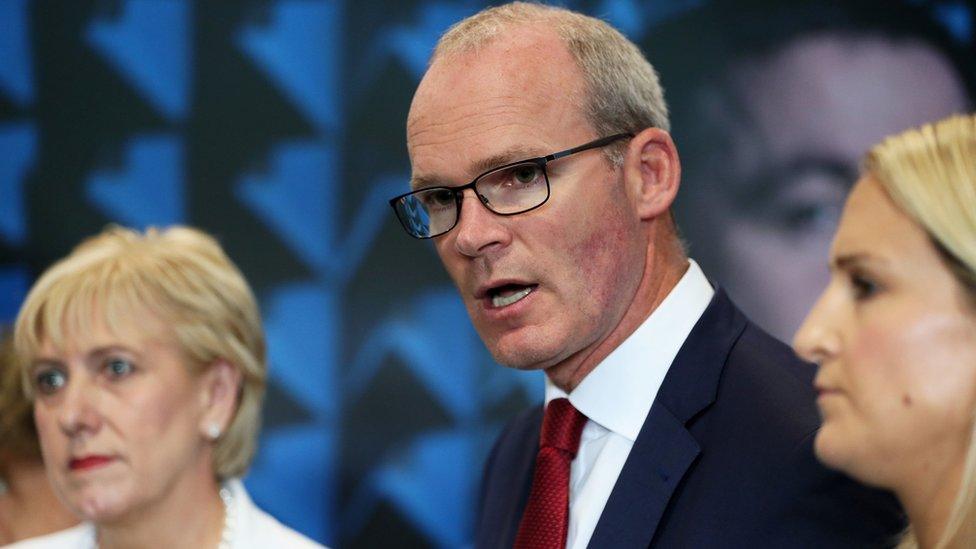
- Published20 September 2019
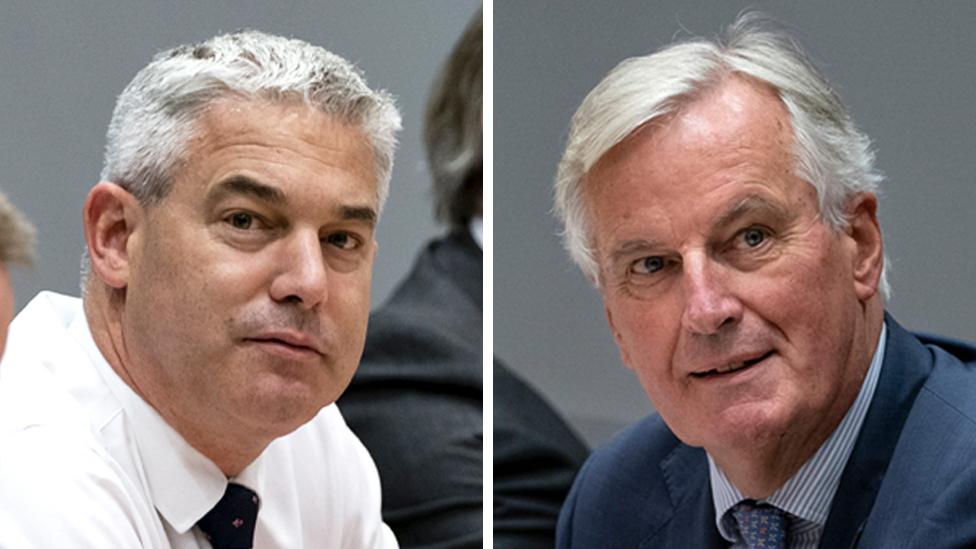
- Published19 September 2019
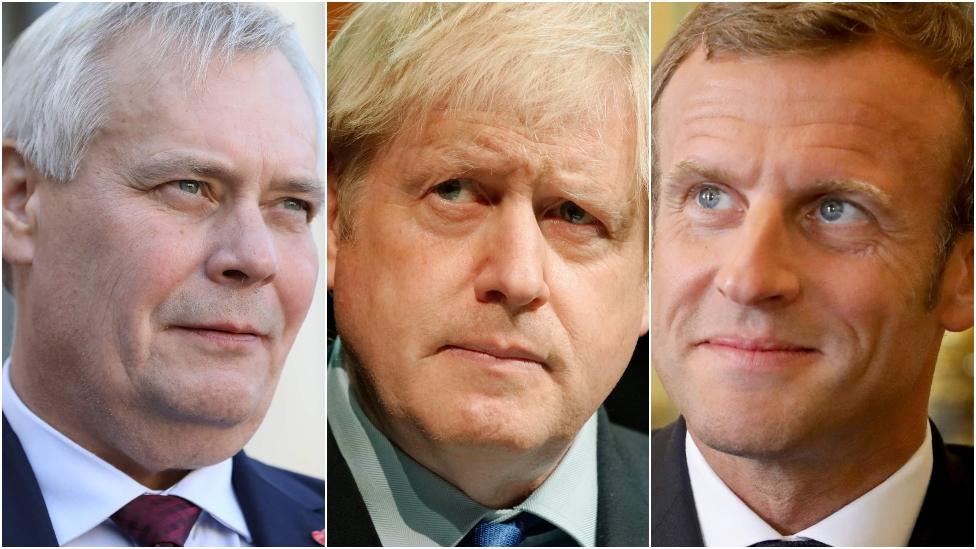
- Published17 October 2019
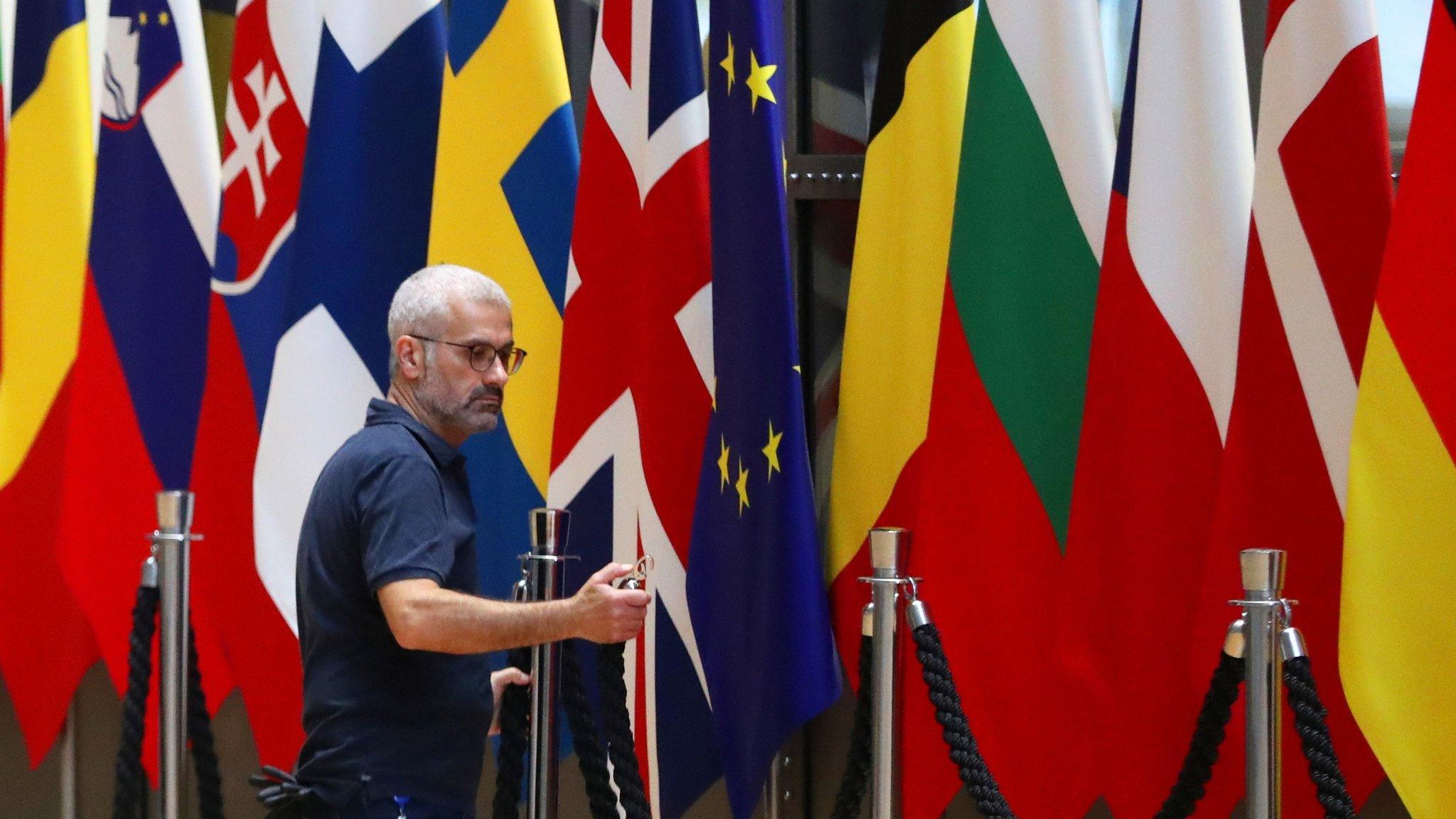
- Published23 September 2019
